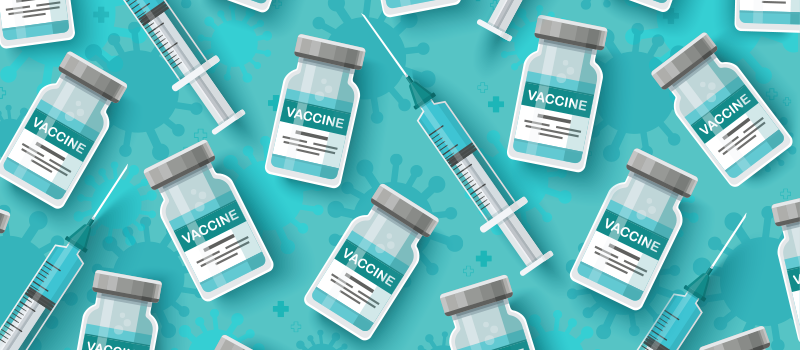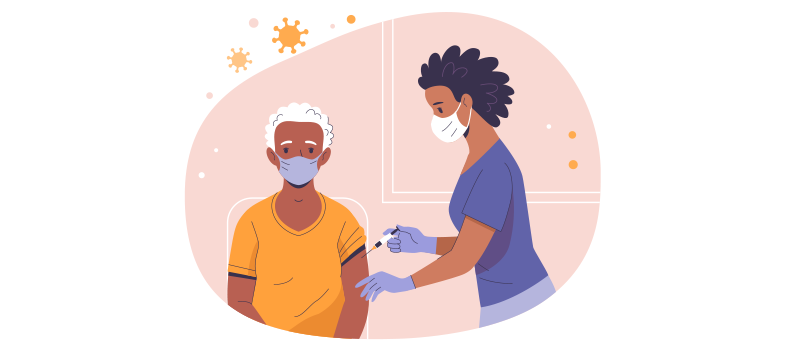What’s the Buzz
The Bee Healthy Blog
Going Back to School During COVID: What is predicted for the fall and winter?

The million-dollar question about Covid-19 is on everyone’s mind: When will life return to “normal”? And will kids go back to school this fall?
The answer may well be determined by the number of Americans that roll up their sleeves for a shot. Also, experts are warning that we need to get used to a new normal—if schools do open this fall and winter, it will likely be with masks indoors, routine testing, and perhaps even vaccine cards. The return to normal will be gradual, so you may not even notice it—it’s not going to be like turning off a light switch and saying, “OK, now the pandemic is over.”
Continue reading to learn more about what experts are saying regarding kids going back to school in the fall and winter of 2021. Also, find out how vaccination will play a key role in putting the pandemic behind us and getting our kids back in classrooms this year.
Can I still get Covid after the vaccine?
The Covid vaccines are not 100% effective in protecting against infection. This means there are going to be some breakthrough cases, i.e., people who get Covid-19 after being fully vaccinated as we’ve seen in the news due to the Delta variant. Some people may get sick with Covid just before or after vaccination. The vaccines take 2 weeks to build protection, so if someone gets infected with the virus before the vaccine has had time to work, they can get sick with the disease.
In general, data shows that if you get Covid after vaccination, your symptoms may be much less severe. Also, your chances of needing hospitalization or dying will be significantly less than people who are not vaccinated. Studies have also shown that fully vaccinated people are less likely to spread the virus to others. Therefore, Covid-19 vaccines are a critical tool that will help us get back to normal and get our kids back in schools this fall and winter.
How many people get Covid after being fully vaccinated?
As noted, Covid vaccines are the most effective way to bring the pandemic under control. Only a small percentage of people may get sick from Covid-19 breakthrough infections after being fully vaccinated. The CDC reported a breakthrough infection rate of 0.01% for the months between January and the end of April, although it acknowledged it could be an undercount due to the Delta variant. The number of hospitalizations and deaths from Covid has fallen as more and more Americans have gotten the shots.
Current data suggests that the Covid vaccines authorized for use in the United States are effective against most known variants of the coronavirus circulating this summer. But this could change as other variants emerge. So, it is a national race against time to get as many people vaccinated as soon as possible to get the Covid pandemic under control
The Centers for Disease Control and Prevention (CDC) defines a breakthrough infection as detection of the virus in a person who is 14 or more days out from the recommended doses of a U.S. Food and Drug Administration (FDA) approved Covid-19 vaccine.
As of July 19, 2021, more than 160 million Americans have been fully vaccinated. The CDC has received reports of 5,914 breakthrough infections during this same time, with 5.601 hospitalizations and 1,141 deaths. Notably, about one-fourth of the people hospitalized were asymptomatic (their hospitalization was unrelated to Covid and the infection was discovered by chance). Similarly, about a quarter of the deaths were unrelated to Covid.
Who is eligible for the COVID-19 vaccine?
Currently, there are three Covid-19 vaccines approved and recommended in the United States - Pfizer-BioNTech, Moderna, and Johnson and Johnson. Pfizer and Moderna are two-shot vaccines while J&J is a single-shot Covid vaccine. The three currently authorized vaccines are effective, safe, and reduce the risk of severe illness and death. Early data suggests they are effective against every known variant of the coronavirus.
As of May 2021, the CDC recommends Covid-19 vaccination to all Americans 12 years of age and older. Children between the ages of 12 and 18 should get the Pfizer vaccine, 2 shots spaced 21 days (3 weeks) apart. People 18 years and older can get any of the three approved vaccines. Moderna is 2 shots spaced 28 days (4 weeks) apart. Johnson and Johnson is one shot. You are fully vaccinated 2 weeks after your second shot of Pfizer or Moderna and 2 weeks after your single shot of J&J. Pfizer, Moderna, and J&J are all approved for pregnant women, and the CDC urges this population to get vaccinated due to the high risk of miscarriages and stillbirths if infected.
How should I prepare my kids that are going back to school during COVID-19?
Ever since schools closed in the spring of 2020, many kids have been sitting in front of computer screens instead of in classrooms. Now, with the pandemic finally showing signs of coming under control, experts are cautiously optimistic. If we keep up the vaccination drive during the summer, we may be able to get our kids back in classrooms this fall and winter. Some parents have already got news from their kids’ schools that in-person classes will begin in mid-September. So, how can you prepare your children for going back to school while Covid is still a threat?
Reinforce good habits over the summer
Since 2020, when the pandemic started, children have picked up some good habits—wearing a mask, washing hands, and practicing social distancing. As the first day of school approaches, you should continue to reinforce these habits, correcting your kids when needed and praising them for getting things right. For example, over the summer period, review removing a mask by the ear loops to avoid contaminating the hands with germs from the mask surface.
Start to put the pandemic behind you
The pandemic has robbed our children of so much, including the daily routine of spending time with classmates and teachers in a classroom and hanging out with friends. As you prepare to send your kids back to school in the fall of 2021, try to reclaim as many back-to-school traditions as you can, whether it is a trip to Disneyland or picking out new clothes for school. Maybe shopping for a new mask will get your kids excited about wearing it at school. And don’t forget to pack the pandemic extras in their school bags—hand sanitizer and a spare mask.
Be aware of back-to-school jitters
For the most part, older kids are excited about returning to classrooms and meeting their friends again. Younger kids, especially those who will be entering a classroom for the first time, may have some anxiety. And after more than a year of online learning, don’t be surprised if your older kids also display some back-to-school jitters. You can assuage their fears by maybe driving by the school building a couple of times and coordinating with their best friends on drop-off times for the first week, so they see familiar faces when they return to school this fall.
Prepare your kids with accurate information
In the months ahead, as kids go back to school this fall, some hurdles are expected. The classroom experience will be different from what it used to be. It’s important that you talk to your kids to fill in the gaps in information and correct misinformation. For instance, what will happen if a child tests positive for Covid? Explain why their temperature may be checked on arrival and why they need to follow the floor decals for social distancing. Once school gets going this fall and winter, check in regularly with your kids to see how they’re doing with the Covid protocols in school.
Kids are incredibly resilient and adaptable. You might be surprised to find how quickly they adapt to the changes brought about by the Covid-19 pandemic as they make their way back to school in the fall and winter of 2021.
References:











SOCIAL